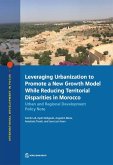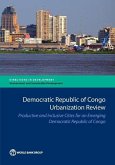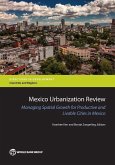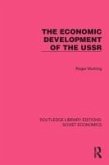Does economic prosperity depend on natural resources, religion and cultural history, or does it hinge on the desire of people to improve their lives? Based on empirical data from all parts of the world, economic historian Franz Mathis challenges conventionally-held perceptions tying prosperity to Western values. The key to prosperity is a rise in the productivity of human labor, which has primarily been achieved through industrialization. As Mathis shows in this provocative work, wherever and whenever big cities emerged industrialization followed. In fact, industrialization is neither a European nor a non-European phenomenon, but, rather, the mass demand of big cities is the decisive and ultimate cause for worthwhile and profitable industrial enterprise.
Hinweis: Dieser Artikel kann nur an eine deutsche Lieferadresse ausgeliefert werden.
Hinweis: Dieser Artikel kann nur an eine deutsche Lieferadresse ausgeliefert werden.








